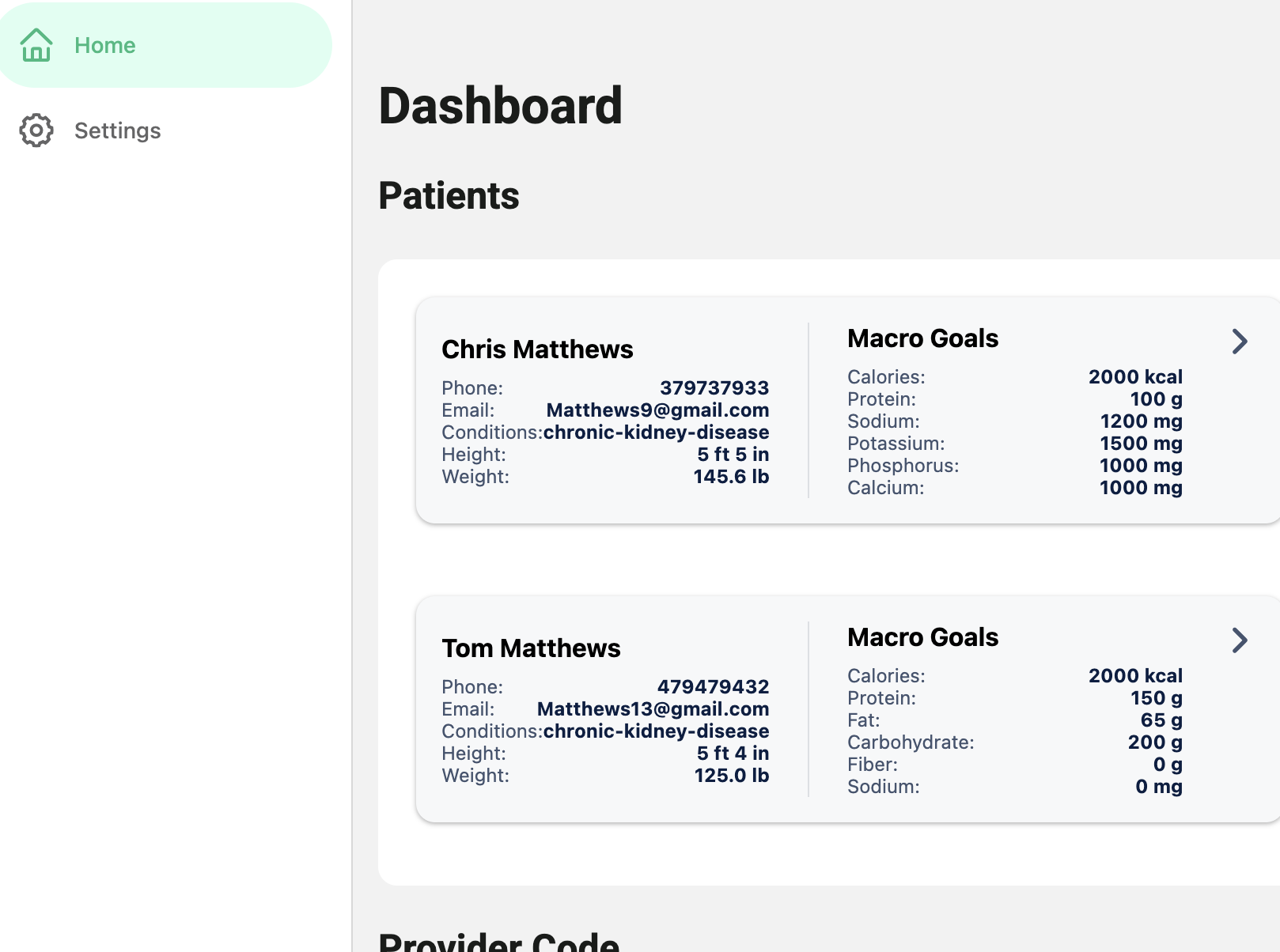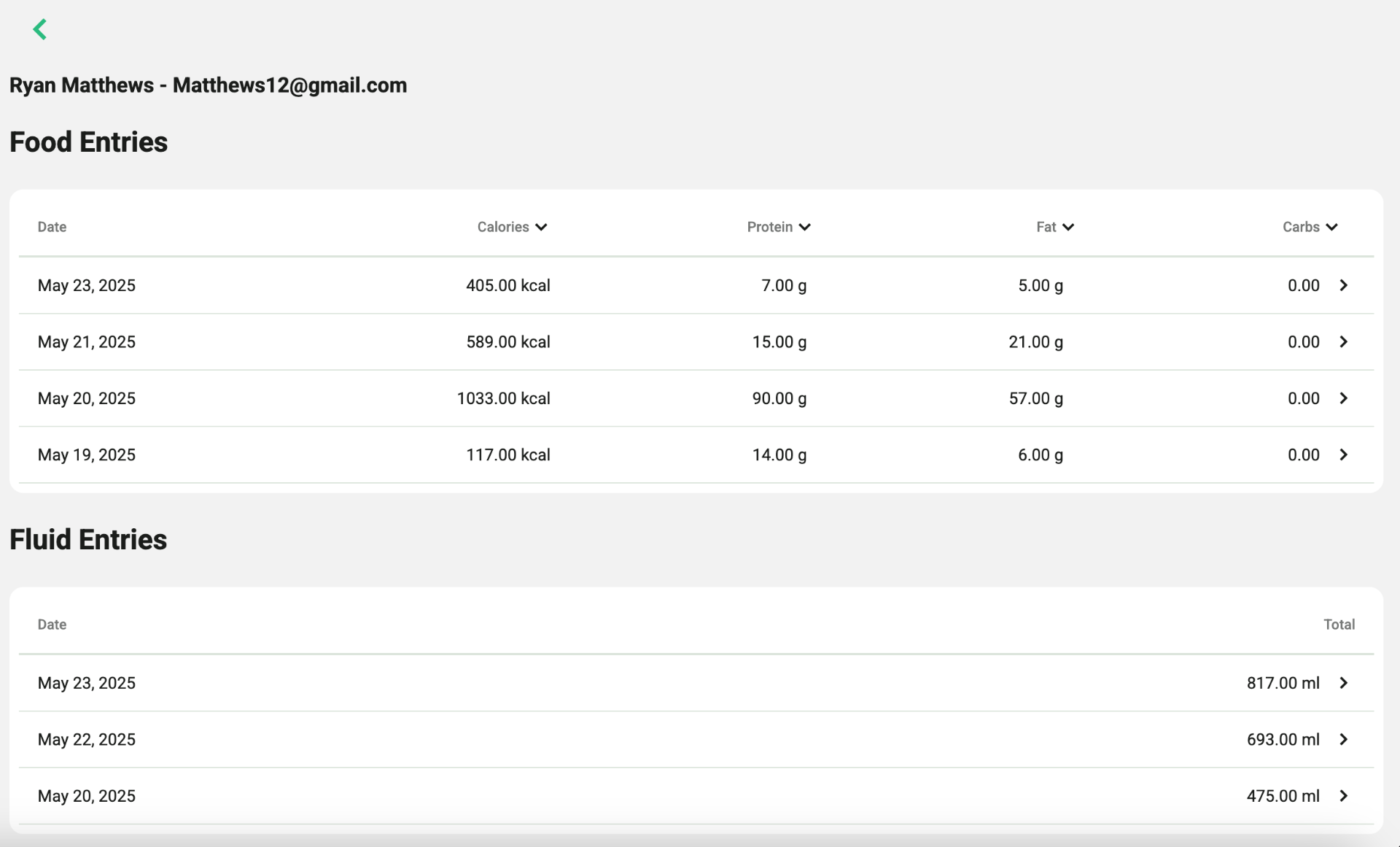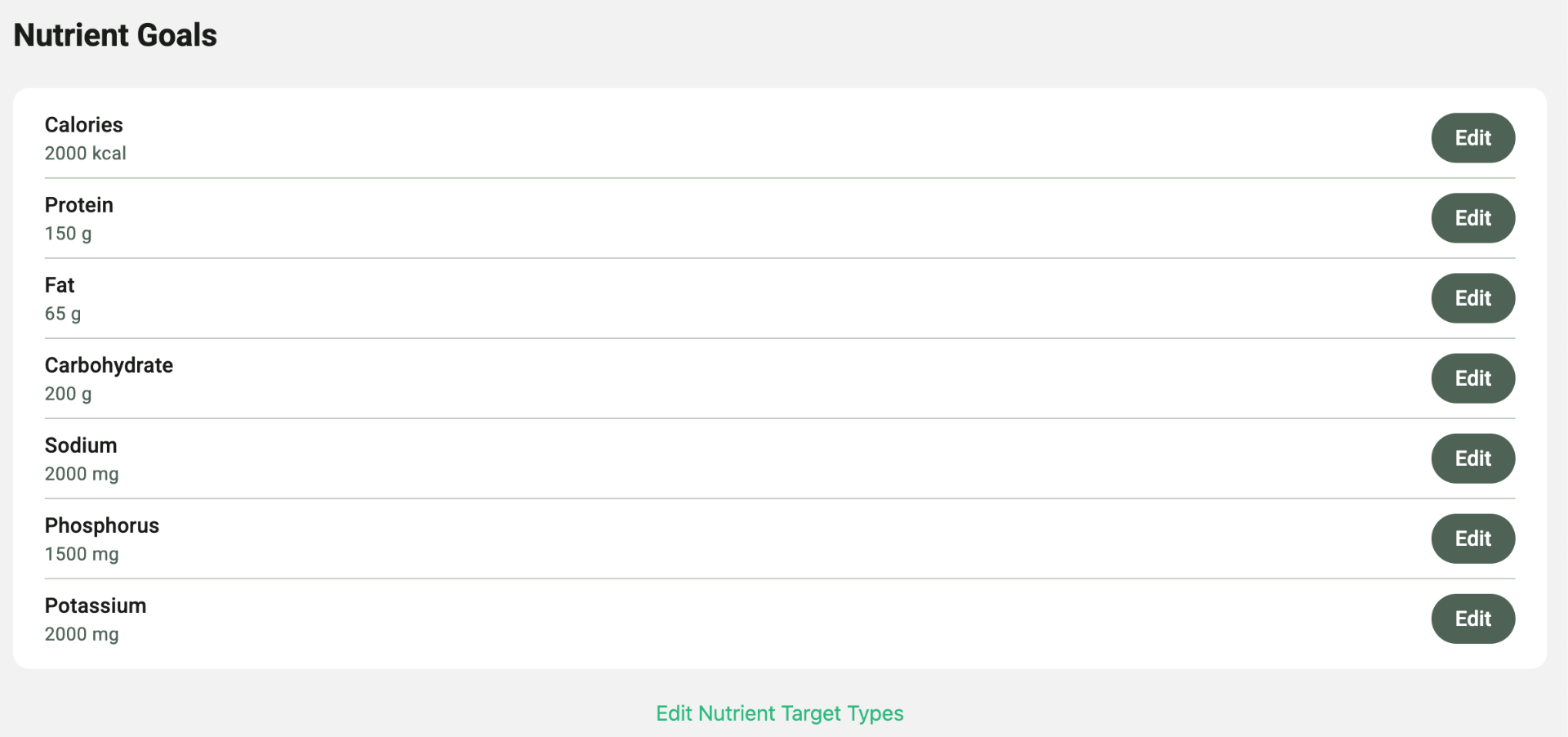Bringing Nutrition to the Heart of Healthcare.
Starting with underserved conditions like
Comprehensive Solutions
Features designed for better renal care
Our platform integrates all aspects of renal health management for both patients and providers
Clinical Nutrition Tracking
Personalized nutrition plans and tracking for renal patients with detailed nutrient analysis and dietary recommendations.
Fluid Management
Smart fluid intake monitoring with personalized recommendations and alerts to maintain optimal hydration levels.
Mood Monitoring
Track emotional wellbeing and its correlation with physical symptoms for comprehensive health management.
Provider Dashboard
Comprehensive analytics and patient management tools for healthcare providers to monitor patient progress remotely.
Appointment Scheduling
Seamless integration with healthcare providers' calendars for easy appointment booking and reminders. Coming Soon!
Coming SoonHealth Monitoring
Continuous tracking of vital health metrics with personalized insights and early warning systems. Coming Soon!
Coming SoonFor Healthcare Professionals
Empowering Providers with Data-Driven Insights
Tailored solutions for dietitians and clinicians to optimize patient care
- Comprehensive nutrient tracking and analysis tools
- Customizable meal plans tailored for renal patients Coming Soon
- Patient compliance monitoring and intervention tools
- Smart reminders to stay within your fluid limits Coming Soon
- Comprehensive patient health dashboards
- Early warning systems for potential complications
- Longitudinal patient data analysis and trends Coming Soon
- Seamless integration with EHR systems Coming Soon
Patient-Centered Care
Taking Control of Your Renal Health Journey
Easy-to-use tools designed specifically for individuals managing kidney disease
- Personalized renal-friendly meal suggestions Coming Soon
- Easy food logging with nutrient analysis
- Nutrient intake tracking (sodium, potassium, phosphorus, protein, etc.)
- Barcode scanner for quick food logging Coming Soon
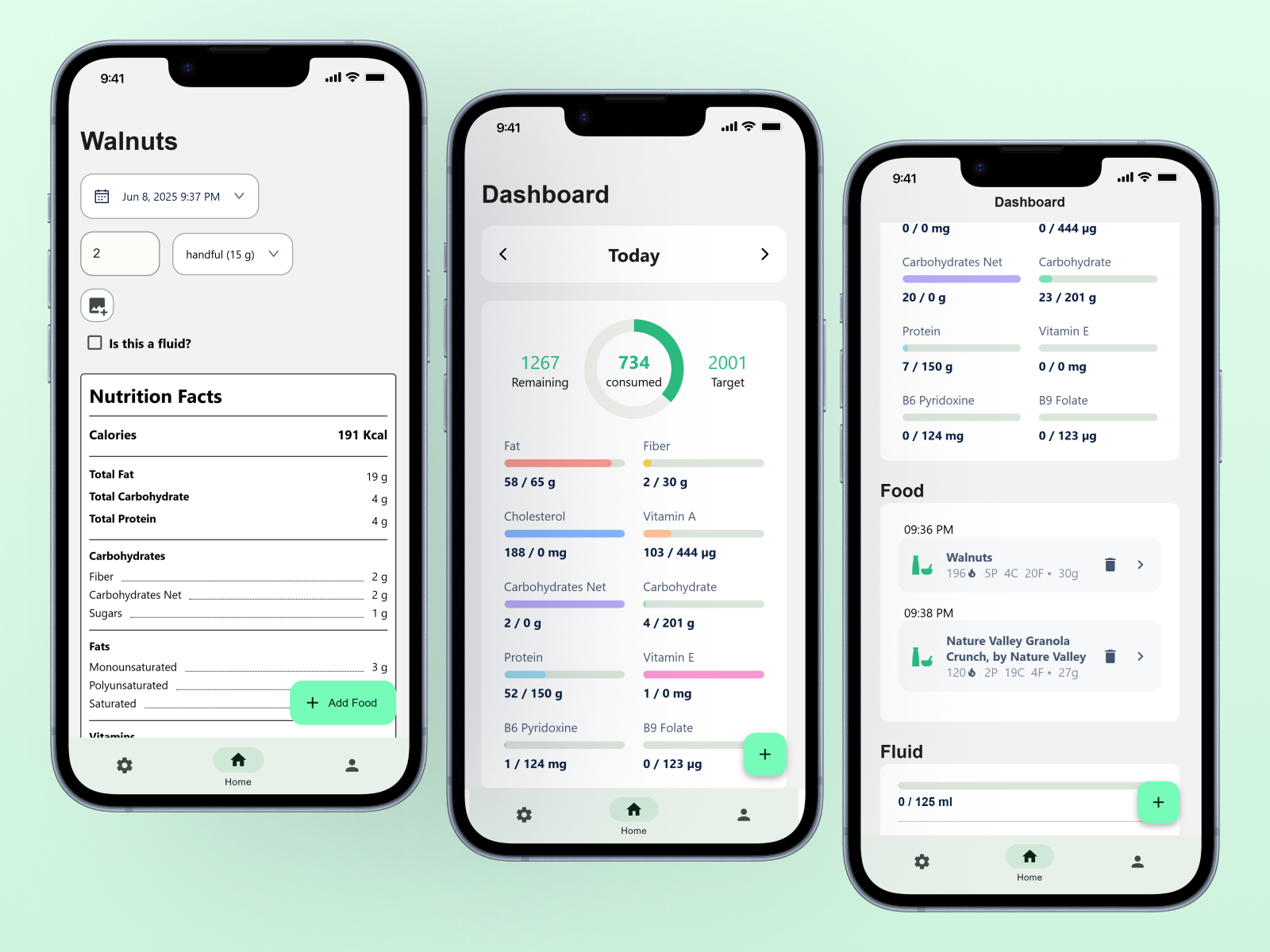
- Personalized fluid intake recommendations Coming Soon
- Smart reminders to stay within your fluid limits Coming Soon
- Visual representation of daily fluid intake
- Fluid intake patterns and analytics Coming Soon
- Daily mood check-ins and tracking
- Correlation between mood and physical symptoms
- Mental health resources and coping strategiesComing Soon
- Options to share mood data with your care team
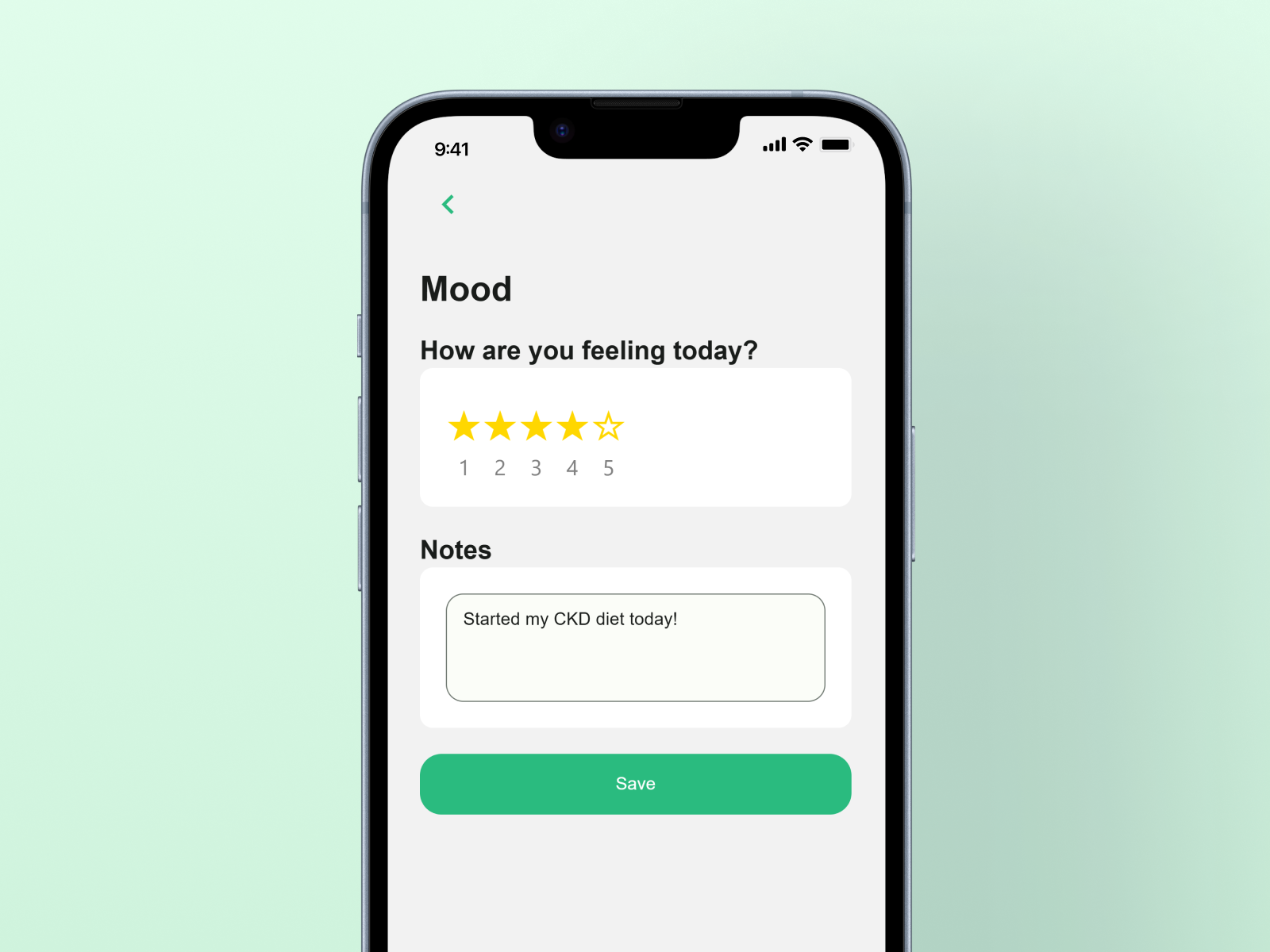
Get In Touch
Contact Us
Have questions or ready to transform your approach to renal care? We'd love to hear from you.
Contact Information
info@vitaltrackh.com
+1 (407)-538-1703
Request a Demo
See our platform in action. Schedule a personalized demo with one of our product specialists.
